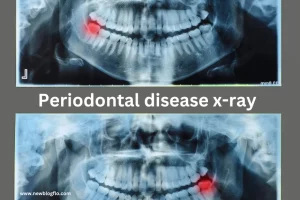Dissecting Toothache and Earache Causes
While many factors provoke simultaneous tooth and ear pain, dental infections rank among the most common culprits. Abscessed teeth, gum disease, and impacted wisdom teeth often kindle this paired discomfort. Erupting molars can also spark ear and tooth pain in children.
Beyond infection, trauma to the teeth from grinding, dental procedures, or injury can impinge on the auriculotemporal nerve and cause ear and toothache. Temporomandibular joint disorders also elicit inflammation that radiates to the ear region.
In many cases, a dentist’s intervention is key to easing this twinned misery. Procedures like root canals, tooth extractions, and gum treatments resolve oral infections transmitting pain signals. Night guards cushion against damage from grinding, while TMJ splints realign the bite. Fixing the dental disorder curtails referred pain.
The Curious Case: Inner Ear Issues Due to Tooth Infections
Can tooth infections provoke actual inner ear problems beyond just referred pain? Emerging research suggests this surprising link.
Studies reveal certain oral bacteria implicated in dental infections can spread from teeth to inner ear fluids, likely via the Eustachian tube. This stokes inflammation inside the ear, potentially contributing to conditions like Ménière’s disease.
Cases of sudden sensorineural hearing loss triggered by dental infections have also emerged in research. Experts theorize bacterial spread and inflammation may damage inner ear structures, disrupting hearing function. However, concrete evidence remains limited overall. Still, maintaining robust oral health is always wise to avoid dental infections and reduce ear complication risks.
Medication for Pain Relief: A Guide for Ear and Teeth Pain
When toothache and ear pain flare up together, medications can provide symptomatic relief while awaiting dental treatment. Anti-inflammatories like ibuprofen or naproxen ease swelling and discomfort. Acetaminophen also reduces pain. Products containing benzocaine can temporarily numb pain in the mouth and ear canal.
For severe tooth pain, dentists may prescribe stronger prescription pain relievers like codeine combined with acetaminophen. However, opioids come with risks and side effects. Antibiotics are sometimes used short-term for infections, but don’t impact pain. Always consult your dentist before taking any medication for tooth/ear pain. Proper dental treatment remains key for resolving the underlying cause.
Temporomandibular Disorders: What You Should Know
Temporomandibular joint disorders often provoke pain in the jaw that can radiate to the ear area. The temporomandibular joints on each side of the jaw connect the lower jawbone to the skull. Problems like arthritis, injury, dislocation, or muscle spasms affecting these joints or the chewing muscles spark pain.
Symptoms include:
- Jaw pain or soreness
- sounds in the jaw such as clicking, cracking, or grinding
- Limited jaw mobility or locking
- Headache, earache, neck and shoulder pain
Diagnosing temporomandibular disorders involves a dental exam, imaging tests, and analyzing jaw movements. Symptoms can be managed with the use of medications that reduce inflammation, splints, physical therapy, stress management, and surgery. Addressing TMJ disorders curtails referred ear and face pain.
Scheduling An Appointment: When and Why
If you develop simultaneous toothache and ear pain, prompt dental examination is key. This helps identify potential dental origins like abscesses, TMJ disorders, or grinding damage. Timely treatment of oral infections is critical to avoid complications.
See your dentist right away if you have severe, unrelenting toothache with ear pain, as this may signal an abscess. Also seek urgent care for high fever, facial swelling, or trouble breathing along with tooth and ear symptoms. These require emergency intervention to avoid dangerous spread of infection.
For milder, intermittent discomfort, schedule a dental visit within a few days to a week. Dentists can diagnose issues through x-rays, tests, and an oral exam. Routine 6-month cleanings enable early detection of developing problems. Don’t delay when it comes to safeguarding your dental health and relieving associated ear troubles.





